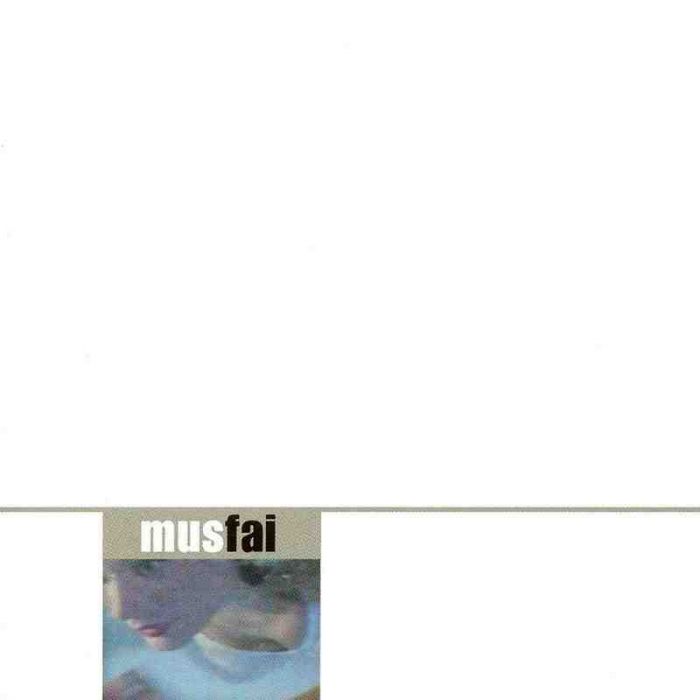Fai by Mus (Review)

I’ll be honest and start this review by saying that I know very little about Mus. This Spanish duo has been around for five years, has four albums and several EPs under their belt, and has garnered critical acclaim and success in underground music circles. Successful enough for Darla to reissue Fai, Mus’ first record.
As compared to their more rock-oriented current sound, their debut finds Mus steeped in cool, dark electronica with elements of trip-hop. Wispy and loose, Fai drifts along like a watery dream, with ethereal Asturian vocals, quiet beats, chilly keyboards, and sampled strings. I can toss out a bunch of adjectives to describe it — “pretty,” “chilled-out,” “dark,” and “dreamy,” to name a few — and they’ll probably give you a good idea what Mus sounds like. Along with that string of adjectives, however, I might also throw out words like “unstructured,” “uninteresting,” and even “boring.”
While Mus’ sound is nice enough, the songs often seem more like mere ideas than actual songs, carrying on a sample for over five minutes with little development. The result is some chilled-out trip-pop that’s nice enough, but unfortunately, is rarely attention-grabbing enough to be anything more than background music.
The first half of the album is weaker, high on the “chill” factor but low on substance. “Los Dies, Les Coses” is a pleasant opener with cloudy female vocals, mellow guitar, and a foot-tapping beat. It sounds a bit unfocused, jumping here and there between different structures, but works as an intro, and is one of the nicer cuts on the album. “La Paura” is Fai at its darkest and most conventional, with dark keyboard, sax, and a simple beat. It’s a much-needed track on an otherwise mostly beatless record.
The next few songs, three of which are under two minutes, go by without much happening. But the latter half of the album redeems the first half with stronger songs, though it’s not until “Dexase Apagar” that things get going again. Undoubtedly the best song on the album, it’s the one track where Mus blends all the elements of the other songs together — ethereal, dreamy vocals and rippling watery keyboards — and compacts them into a focused 4-minute track that’s beautiful and summery, and more direct than any of the disc’s other songs. But tracks like the pastoral “La D’amor” and the droning, string-laden ambient track “Sebastian” go on for a bit too long, and don’t reach the strength of “Dexase Apagar.”
These shortcomings are understandable, as Fai was Mus’s first album. And while I’ve spent most of the review talking about its weaknesses, that doesn’t mean that it’s without merit. But I find little here to get excited about. It’s something pleasant and pretty to put on when you’re not looking for music that demands much attention, but it’s not anything particularly new. I don’t doubt that Mus has since developed their sound, though, and if they’ve managed to create something like “Dexase apagar,” they may very well be worth looking into.
Written by Richie DeMaria.